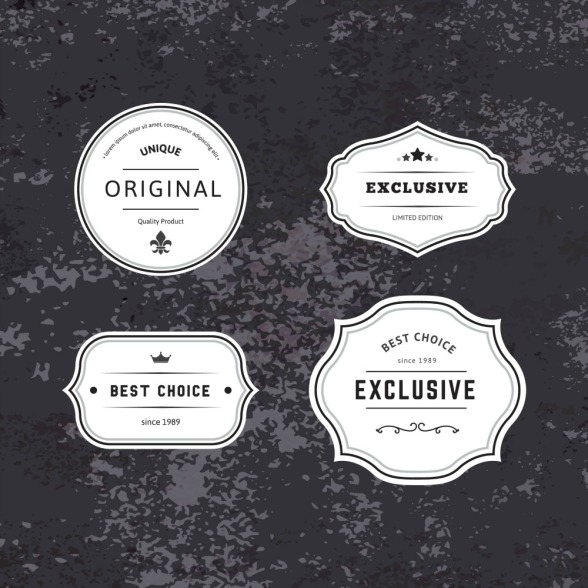So I’m noticing that a lot of people are seeing categorizing as inherently bad because it either a. oversimplifies reality or b. means that you treat people in a category differently. I disagree with both of these criticisms, both on the level that I don’t think they’re always true, and on the level that I don’t think either of them is always negative. There are of course circumstances where labeling things and people is not the most appropriate or helpful thing to do, but there are ABSOLUTELY times that it makes communication and understanding easier. Let’s talk about that.
In both of these cases I want to look at mental illness/neurodiversity/different brains as an example.
Let’s start with the first issue, oversimplification. Are labels an oversimplification? In some ways, all categories must necessarily be an oversimplification. Of course in some ways all individual words are an oversimplification. What a useful label is, is taking a complex idea and shorthanding, giving it a one word name that allows us to refer back to the larger, more complex idea. Let’s take the label “anorexic” as an example. My lived experience of anorexia is far more complex than the word “anorexic” can communicate, but if I tell a stranger “I was anorexic for 5 years,” I have communicated a fairly complex idea to them relatively quickly. I don’t have to explain all the individuals symptoms of anorexia, or the fact that it was a mental illness. I can sum it all up with one tidy word.
Yes, it is possible that you don’t have a good understanding of what anorexia is. Maybe you assume that all people with anorexia are teenage girls, or you really don’t know what anorexia is. That can be a problem and lead to misunderstandings, and when we have a lot of people who are not educated about a particular label, it becomes less and less helpful to use that label. There is some push and pull between brevity and explanation, and in any given conversation it’s good to weigh whether you’d rather explain more to ensure you’re truly understood or be more brief and risk misunderstanding.
Additionally, most words run the risk of misunderstanding. “Smart” is not a label in the traditional sense, but many people have differing understandings of the word smart. It is a natural quirk of language that we don’t all hold the exact same definition of a given word, and to ensure clarity we may need to double check with people. It still seems to me to be easier and faster to use a label like “anorexic” and then check in about specifics rather than starting from the ground up and educating where necessary. It’s useful to have a word that summarizes a complex idea.
As to whether labels push people to treat others differently, I’m going to question that primarily on the basis that sometimes the point of a label IS to receive different treatment. Also we should note that some labels don’t result in people treating others differently, like blue eyed vs. green eyed. Labels don’t ALWAYS change our behavior. But sometimes they do, and let’s talk about that.
In this case let’s take autism. I’m autistic. Many people think that it shows kindness and respect to look someone else in the eye, give them a hug when they’re feeling down, invite them to a party if they’re friends etc. Those are things that make me incredibly uncomfortable, and if I can communicate “please respect my lack of eye contact, please give me more physical space, please don’t take me places that are loud and overstimulating” by telling you that I’m autistic that’s fucking fantastic for me. I WANT people to treat me differently because I have different needs. Many people do. Sometimes labels are important because they help us understand what someone prefers or needs to get by in life (see: introvert/extrovert divide and why we’re so into telling people if introverts or extroverts). It’s why I prefer “Treat others the way they would like to be treated” over “treat others the way you would like to be treated.”
Sometimes that “summing up” usage of a label makes it easier to understand a person’s needs or wants. It turns out that it’s why we use labels in the first place (not just on people either. If something is labelled “hot” we understand more clearly how to behave around it). Yes, it is possible to go overboard on this one. Not every autistic person is the same. You shouldn’t treat all autistic people exactly like each other. We’re all individuals. But until you get to know me, having a particular label can help you get a handle on likely behaviors that will be good for me.
Essentially labels cannot be the ONLY way that we understand people, but that doesn’t mean that they’re NEVER helpful to understanding people, and I think that many people who resist labels ignore the fact that without them it’s harder to communicate, harder to find like minded people, and harder to understand yourself.









